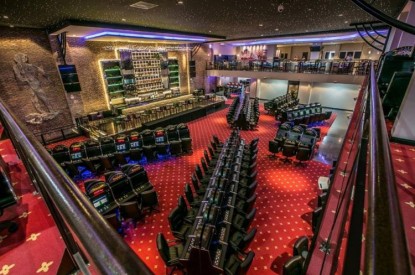Operator News
Brazil – Winfil to keep 14 bingo halls ready for regulation
By Phil - 1 March 2018
A lawyer representing Brazilian bingo company Winfil has said that despite bingo and video bingo machines being banned in Brazil, the operator will wait to hear how new legislation pans out before closing its properties or developing them further.
The number of registered Winfil bingo halls has now spread throughout Brazil and now stands at 14 according to local press.
While only the establishment located in the south of Porto Alegre is currently open, 13 more branches are registered at a state and local level ten of which are in Rio Grande do Sul, two in Santa Catarina and one in Brasilia.
Lawyer acting on behalf of the company Luis Laertes Gschwenter told Zero Hora that, “The idea is to await the decision of the STF (Federal Supreme Court) on whether or not gaming will continue to be a criminal offence. We believe that the trial will take place in the plenary in March. After that we’ll schedule the expansion of the venues. Without market regulation, we already have 11 processes (underway).”
The Winfil gaming house, pictured, opened on October 19 with games offered in demonstration mode only. The establishment houses 40 different types of games, 460 machines and the Parisian themed slot parlour is able to accommodate 1500 people and includes a restaurant. However just eleven days later State Police forces alongside members of the Public Prosecutor’s Office served a search and seizure warrant on the establishment as it had begun to offer cash money bets. Police seized money, and gaming components including controller boards during the raid. Police carried out another raid shortly afterwards after it was found to be offering cash bets. In January 2018, it was reported that the slot parlour was once again taking real money bets with local law enforcement officials poised to take further action.
The company is clearly positioning itself should the STF rule in its favour. Gschwenter said that the first phase of the company’s growth plan should generate an investment standing at between US$750,000 and US$1.5m, which would generate 417 jobs.
The existence of bingo halls, in what in many instances amounts to a legal vacuum, continues to cause controversy. This is especially true when it comes to bingo halls in Porto Alegre, the capital of the Brazilian state of Rio Grande do Sul. This is because a number of bingo halls reopened last year after local state magistrates ruled in their favour. Magistrates for the local Criminals Appeals Panel ruled that gaming does not constitute a criminal offense because the 1941 law, which outlawed gambling as part of Brazil’s Criminal Contravention Act, violates principles laid out in the 1988 Constitution. The Brazilian constitution was rewritten in 1988 after civilian rule returned to Brazil after more than two decades of military government.
In addition local bingo hall owners are hoping that the provisional measures passed in 2004, which banned bingo halls, have expired. However, while magistrates have acquitted defendants in a number of cases it does not necessarily mean that bingo halls have been given the green light as there are currently no rules in place, which expressly allow them to do so. In addition, the state Public Prosecution Service has appealed the acquittals to the Federal Supreme Court. As a result, it is now up to the Federal Supreme Court to decide if gaming is an illicit activity under Brazilian law.
This legal battle continues as both houses seek to change Brazil’s antiquated gaming laws. In the Senate pro gaming, law (PLS 186/2016) is under debate in the House Committee on Constitution, Justice and Citizenship (CCJ). Meanwhile, another bill (PL 442/91) was approved by a special committee and is ready to be voted on in the Chamber of Deputies. Both bills seek to allow gaming in order to create jobs, boost tourism and increase tax revenue for the state.


